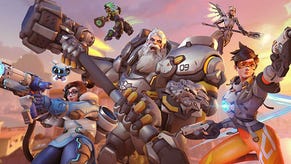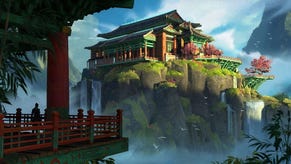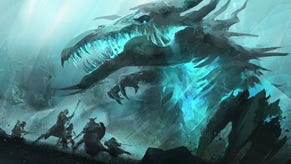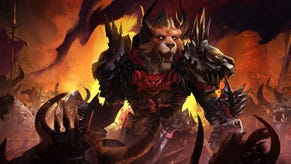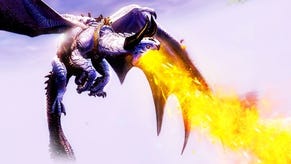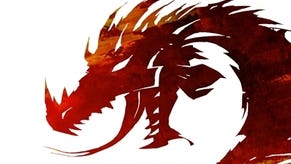Guild Wars 2
Wow factor.
The death of the quest
Falling into groups naturally is something that you'll be doing a lot, thanks to Guild Wars 2's dynamic events system, which is nothing less than a fundamental change in how MMOs are structured.
In themselves, the events are an evolution of an idea that began with Warhammer Online's public quests and was recently and extensively expanded upon in Rift. The events are dramatic, multi-stage battles or mini-adventures that scale for solo or multiple players, can be wandered into and participated in at any time, and offer automatic ranking and rewards at the end.
Evolution becomes revolution with ArenaNet's decision to use events for the "mass" of Guild Wars 2's content, meaning you never have to pick up or turn in quests, and everything other than your personal story (more on this later) is inherently multiplayer. If you see something happening, you can take part in it; if someone else sees it, they can join you, and neither of you will be penalised for that.
While quests are "one and done", as lead designer Eric Flannum puts it, events are repeatable. They repeat according to logical cycles of action and reaction, rather than simply resetting, Groundhog Day style, and also according to their own timetables: some will be rare, some will have environmental or narrative triggers that players will have to discover.
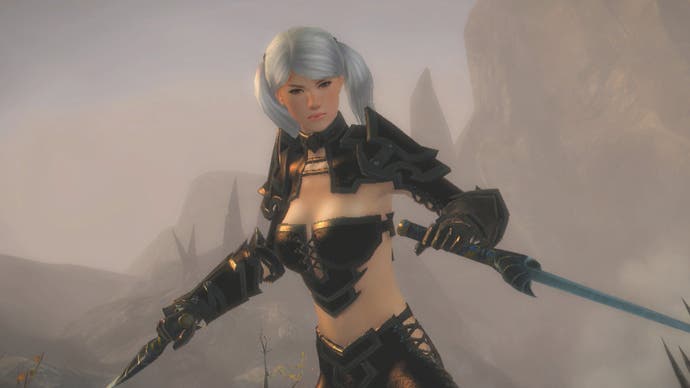
"Imagine if you're playing a game, and you walk up to a guy, and you click on a guy, and you have to read three paragraphs of text that explain to you that there are lions loose in the city and they're eating people," says Johanson, explaining the difference between quests and events. "And you look around you, and there might be a few lions that are standing around, and you get to go up and kill 'em.
"Or imagine that you're standing in the city streets, and you hear people screaming and running in all directions. There's lions running around literally eating people, there's people burning tyres to keep them away because they're scared of what's going on. You hear the sounds, you see all of this going on.
"Which of those would you prefer? Which game world do you want to be in?"
O'Brien argues that the way quests lock goals to a single player leads to "players not having the same motivation", queuing for kills, while non-player characters are stuck in nonsensical loops, serving individuals with the same pockets of story over and over again. Events, however, encourage natural co-operation.
"It gets people playing together," he says. "MMOs are supposed to be social games, and too often everyone's doing their own thing... It feels like we're building the first truly co-operative MMO." The team's motivation was "thinking back to the early days of MMOs, what were we all hoping MMOs would be? The promise of MMOs. And what we all hoped, I think what everybody still hopes today, is that it's really a world."
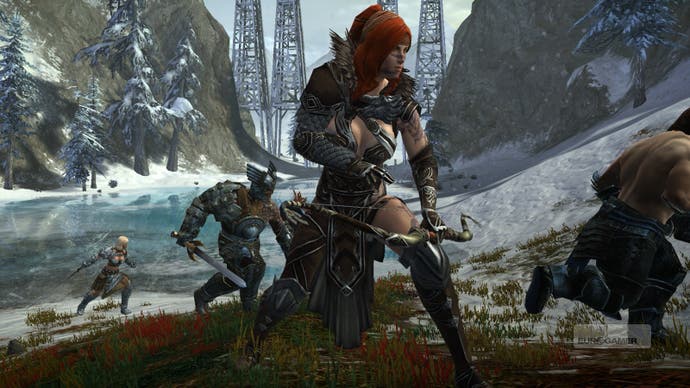
Events are slightly counter-intuitive to seasoned MMO players – testers would apparently run right past them, assuming they didn't have the right to join in – so ArenaNet has worked hard on the interface and introduced a system of "scouts", a kind of optional quest-giver who will tell players where to find the action. The developers have saturated the world with visual and audio cues: characters will run up to players and beg their help, while enemy raiding parties won't spawn on the spot, but will be seen travelling to their targets.
After a very short while, playing events seems utterly natural. There's more variety and dynamism to fighting monsters, more immediacy and less planning to your adventuring, a sense of camaraderie with other players, and a feeling of being part of a living world, rather than a living database.
Playing one of the mid-level events – a centaur siege on a human village – I noticed that I wasn't reading text or looking at UI elements to see where I needed to go next, but simply watching where people (NPCs or players? It didn't seem to matter) were running, and following them. In Guild Wars 2 an invisible wall between the player and the world has simply been lifted away.

